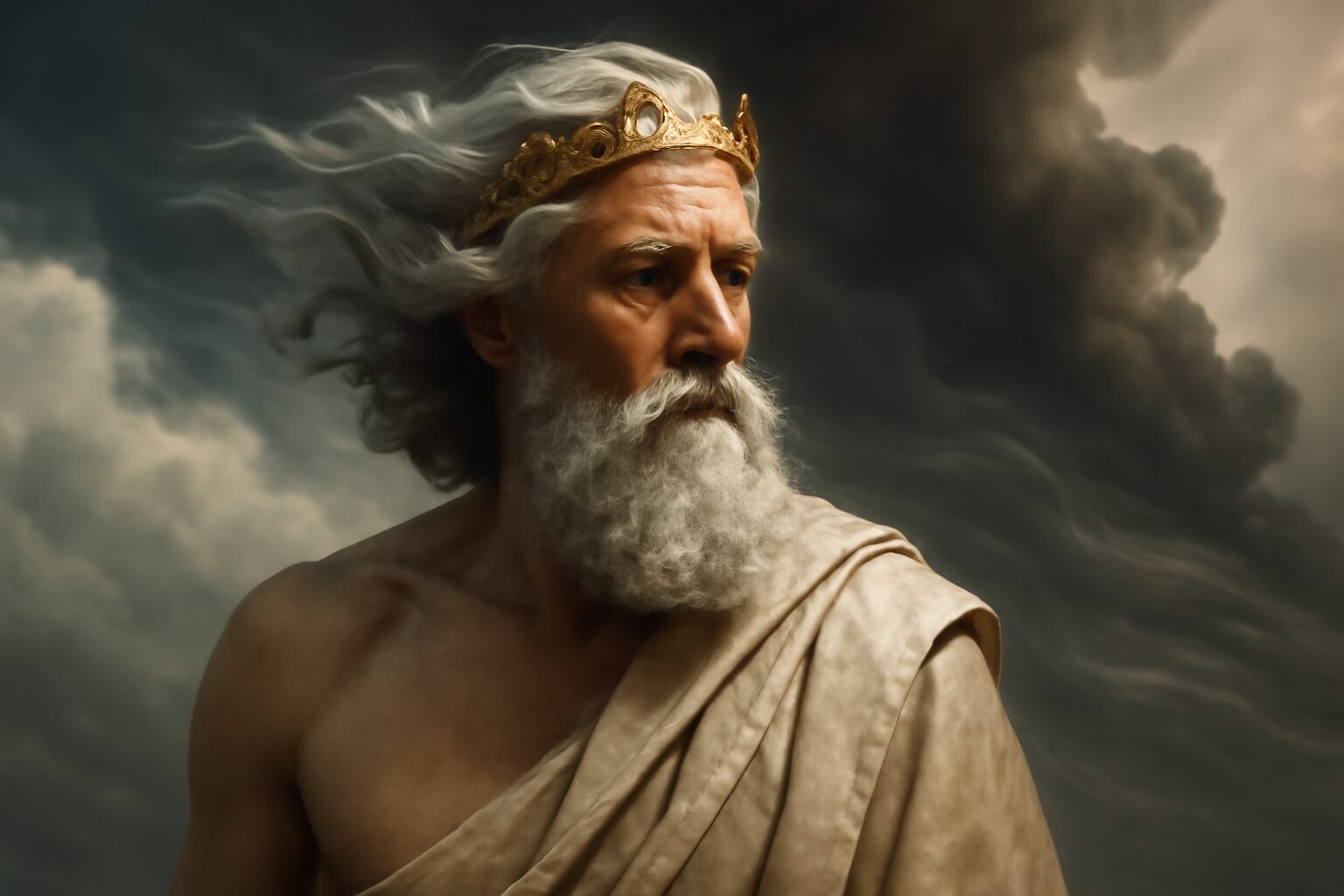Euronotus: The Forgotten Wind of the South
In Greek mythology, Euronotus was one of the lesser-known Anemoi, the wind deities who personified the cardinal directions. While his brothers—Boreas (North), Notus (South), Zephyrus (West), and Eurus (East)—often took center stage, Euronotus represented the southeast wind, a subtle but significant force in ancient Greek cosmology.
Origins and Role
Euronotus was born to the Titan Astraeus, god of dusk, and Eos, goddess of dawn. As one of the Anemoi, his domain was the winds, particularly those blowing from the southeast. Unlike the violent storms of his brother Boreas or the gentle breezes of Zephyrus, Euronotus was associated with transitional weather—often bringing moist, warm air that signaled seasonal changes, particularly in maritime regions.
Powers and Influence
Though not as widely worshiped as other wind gods, Euronotus played a crucial role in navigation and agriculture. Sailors relied on his winds for favorable voyages across the Aegean, while farmers watched for his arrival as a sign to plant or harvest. Some myths suggest he could summon sudden gusts or calm seas, depending on his mood—a temperamental trait shared by many Anemoi.
Relationships and Symbolism
Euronotus was often depicted as a youthful figure with windswept hair, carrying a conch shell to herald his presence. He had few dedicated myths but occasionally appeared in tales alongside his brothers, particularly Notus, with whom he shared the southern winds. Unlike the more personified Olympians, Euronotus was more of a natural force than a character in dramatic legends.
Legacy and Worship
Though rarely the focus of cults, Euronotus was sometimes invoked in prayers by sailors and farmers. His name appears in ancient texts, including Hesiod's Theogony, which lists him among the wind gods. Today, he remains a fascinating example of how the Greeks personified even the most subtle aspects of nature—a reminder that every breeze, no matter how quiet, had its own divine spirit.
Alternative Names for Euronotus
God Name: Euronotus (Roman)
The Roman equivalent retains the same name as the Greek, 'Euronotus,' suggesting no distinct Roman counterpart or alternative name was historically recorded. This may indicate that the deity was not widely worshiped in Roman culture or that the name was directly adopted without alteration.
God Name: Notios Euronotus (Greek (Epithet))
An epithet combining 'Notios' (southern) with 'Euronotus,' possibly used to emphasize the god's association with southern winds or directions. This form might appear in poetic or regional contexts to specify aspects of the deity's domain.
God Name: Euronotos (Greek (Alternative))
A minor variant spelling of 'Euronotus,' found in some ancient texts. The difference is purely orthographic, reflecting regional or temporal variations in Greek language usage without altering the god's identity or attributes.
Tales about Euronotus
The South Wind's Healing Touch
When a terrible plague swept through the coastal villages of Thessaly, the people cried out for relief. Aceso, goddess of healing, heard their pleas but found her remedies weakened by the stagnant, oppressive air. She called upon Euronotus, the south wind, to carry her healing energies across the land.
The Great Purification
Euronotus gathered the gentle southern breezes, infused them with Aceso's healing power, and swept across the afflicted region. The wind carried away the miasma of disease while distributing healing energies that strengthened the people's resistance. Within three days, the plague had lifted, and the villages celebrated the combined power of healing and cleansing wind.
The South Wind's Musical Contest
Aoide, the muse of song, once challenged the winds to a contest of music. While the north wind howled and the west wind whistled, Euronotus approached differently. He gathered the rustling of cypress trees, the gentle lapping of waves, and the distant songs of sailors, weaving them into a melodic harmony.
The Harmony of Nature
Euronotus's composition so moved Aoide that she declared him the winner, not for technical skill but for capturing the true music of the world. From that day forward, the south wind carried with it fragments of this divine melody, which can still be heard in the gentle rustling of leaves and the soft sighing of the sea.
Frequently Asked Questions
Who is Euronotus in Greek mythology?
Euronotus is one of the lesser-known Greek sky deities, often associated with the southeast wind. While not as prominent as gods like Zeus or Apollo, Euronotus represents a specific aspect of nature's forces in Greek mythology.
Why are sky deities important in Greek mythology?
Sky deities were crucial in Greek mythology as they represented natural phenomena that affected daily life - weather, seasons, and celestial events. The Greeks believed these gods controlled elements vital for agriculture, travel, and survival.
What can we learn from Greek sky deities like Euronotus?
These deities show how ancient Greeks personified and tried to understand natural forces. Euronotus and other wind gods demonstrate their attempt to explain weather patterns through divine intervention rather than scientific understanding.
How does the concept of Euronotus apply today?
While we no longer worship these deities, they remain culturally significant in literature and art. The concept of wind gods like Euronotus influenced modern terms like 'aeolian' (relating to wind) and appears in fantasy genres.
Are there any myths specifically about Euronotus?
Unlike major gods, Euronotus doesn't feature prominently in surviving myths. As a personified wind deity, he was likely mentioned in weather-related contexts or invoked by sailors, but no major stories center around him.













